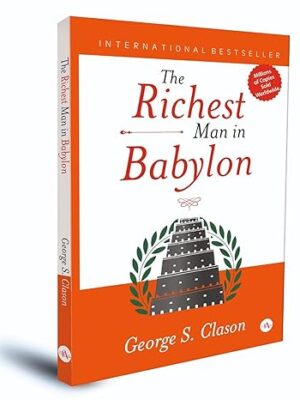The Wealth of Nations
Secure Checkout with Amazon!
- Top-Rated Books
- Readers Satisfaction
- Verified Customer Reviews
Description
The Wealth of Nations, written by Adam Smith in 1776, is one of the most significant works in the history of economics and has laid the foundation for modern economic theory. Its full title, An Inquiry into the Nature and Causes of the Wealth of Nations, reflects Smith’s ambition to explore the mechanisms behind economic growth and prosperity. The book spans five volumes, each covering different aspects of economics, ranging from the division of labor and the functions of markets to the role of government and the nature of wealth.
One of the central themes of the book is the concept of the “invisible hand.” Smith argues that individuals, when acting in their own self-interest, inadvertently promote the overall economic good of society. This principle suggests that markets, if left to operate freely, will naturally allocate resources efficiently. Smith’s idea was revolutionary at the time, as it contrasted sharply with the prevailing mercantilist view, which emphasized heavy government intervention and protectionism. Mercantilism saw wealth as finite and focused on accumulating gold and silver through trade surpluses, but Smith refuted this by advocating for free trade and competition.
A key concept introduced in The Wealth of Nations is the division of labor. Smith uses the famous example of a pin factory to illustrate how dividing production tasks among specialized workers significantly increases productivity. In this example, rather than each worker making an entire pin, one worker draws the wire, another straightens it, and so on. This specialization allows workers to become highly skilled at their specific tasks, leading to greater efficiency and output. Smith believed that this division of labor was a primary driver of economic growth and wealth creation.
Smith also explores the origins of money and how it facilitates trade by overcoming the limitations of barter systems. He explains that money enables people to specialize in their work and then trade for what they need, which further supports the division of labor. In addition to discussing labor and trade, Smith covers the importance of competition in keeping prices low and ensuring the quality of goods and services. He believed that monopolies and government-granted privileges could distort market outcomes and reduce economic efficiency.
Another key focus of The Wealth of Nations is the role of government in the economy. While Smith is often seen as an advocate for limited government, he does recognize the need for certain government functions. He outlines three essential roles for the state: providing national defense, ensuring justice through law enforcement and the legal system, and building public works that private businesses might not provide, such as roads, bridges, and infrastructure. Smith saw these as necessary for the functioning of a prosperous society but warned against too much interference in the market itself.
Smith also addresses taxation, arguing for a fair and transparent system. He believed that taxes should be proportionate to people’s ability to pay, certain in their amount, collected conveniently, and efficient to administer. He proposed that taxes should neither hinder economic growth nor be so high that they discourage productive activities. This view on taxation has influenced economic policy for centuries, promoting the idea of a tax system that balances government revenue needs with the incentives to work and invest.
While Smith advocated for free markets, he was not blind to the potential downsides of unchecked capitalism. He recognized that certain industries, such as banking and finance, could become unstable without proper regulation. Smith was also aware of the impact of poverty and inequality and suggested that the market alone could not address all social issues.
In The Wealth of Nations, Smith also critiques the accumulation of wealth by a small elite at the expense of the larger population. He believed that the wealth of a nation should be measured by the well-being of its people, not merely by the wealth of the few. This focus on the prosperity of the average person and the importance of productive labor to society were among the more socially conscious aspects of his work.
The book’s historical context is also significant. Written during the Industrial Revolution, The Wealth of Nations reflects Smith’s observations of the rapid economic changes taking place. He was particularly interested in the transformation from agrarian societies to industrial economies, and his analysis of markets, labor, and trade reflects these shifts.
The Wealth of Nations remains a foundational text for modern economics and political theory. Its influence extends beyond economics, shaping ideas about politics, philosophy, and ethics. Smith’s work laid the groundwork for the development of capitalism and free-market economics, and his ideas continue to inform contemporary debates about the role of government, markets, and social welfare.
Today, The Wealth of Nations is not only a historical text but also a living document, with its ideas continuing to inspire economists, policymakers, and scholars. Its detailed exploration of economic principles, written more than two centuries ago, remains relevant as societies grapple with questions of economic growth, inequality, and the role of government in shaping markets. Smith’s insights into human behavior, self-interest, and the functioning of markets make The Wealth of Nations a timeless and essential read for anyone interested in understanding the principles that underpin modern economies.






Reviews
There are no reviews yet.